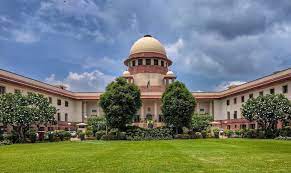Having received Phannuram’s 1/3rd share in the coparcenary properties, Vishal rejected Kesar Bai’s demand for partition and allotment of her individual share therein. (Para 3)
Therein, she claimed her share in the coparcenary properties along with mesne profits. During the pendency of the suit, Kesar Bai died on 17.06.1988 and her son, Derha Ram, the present appellant, succeeded to her estate under registered will dated 16.12.1980. (Para 3)
The High Court partly allowed the second appeal and held that Derha would be entitled to 1/6th share in the suit properties, i.e., the agricultural land and two dwelling houses. Aggrieved by the reduction of his share, Derha filed the present appeal by special leave. (Para 6)
When a male Hindu died after the commencement of the Act of 1956, having at the time of his death an interest in Mitakshara coparcenary property, his interest in that property shall devolve by survivorship upon the surviving members of the coparcenary. However, the proviso thereto states that, if the deceased left behind him a surviving female relative specified in Class I of the Schedule or a male relative specified in that class who claimed through such female relative, the interest of the deceased in the Mitakshara coparcenary property shall devolve by testamentary or intestate succession, as the case may be, under the Act of 1956 and not by survivorship. Explanation 1 clarified that, for the purposes of Section 6, the interest of a Hindu Mitakshara coparcener shall be deemed to be the share in the property that would have been allotted to him if a partition of the property had taken place immediately before his death, irrespective of whether he was entitled to claim such partition or not. (Para 9)
Section 8 of the Act of 1956 elaborates on intestate succession in the case of males. It provides that a property of a male Hindu, dying intestate, shall devolve firstly, upon Class I heirs; secondly, upon Class II heirs; thirdly, if there is no heir of any of the two Classes, upon the agnates of the deceased; and lastly, if there is no agnate, then upon the cognates of the deceased. (Para 10)
In effect, the Bench held that the inevitable corollary of this position is that the heir will get his or her share in the interest which the 5 deceased had in the coparcenary property at the time of his death, in addition to the share which he or she received or must be deemed to have received in the notional partition. (Para 11)
Phannuram’s 1/3rd share was allotted to his only son, Vishal. However, Vishal was a coparcener in his own right in a separate coparcenary with his father and would be entitled to a share in that coparcenary property by birth. Therefore, he would be entitled to a half-share by birth in the I/3rd share of the coparcenary properties that was allotted as Phannuram’s share. (Para 13)
SUPREME COURT OF INDIA
2023 STPL(Web) 229 SC
[2023 INSC 785]
Derha Vs. Vishal
Civil Appeal No. 4494 of 2010-Decided on 1-9-2023
https://stpllaw.in/wp-content/uploads/2023/09/2023-STPLWeb-229-SC.pdf







